Berne Town Board election: Eight compete for four seats
BERNE — Berne’s wide-open future is in voters’ hands.
No previously elected town-board members are staying in their posts. Both major parties are running full slates.
Democrats had dominated town politics for decades, but with Donald Trump’s election in 2016 — enrollment in Berne heavily favors Democrats, the town went for Trump — the GOP got a foothold. And, in 2020, the first GOP-dominated town board took office. The one remaining Democrat on the board is not running again.
This fall, Democrat Peggy Christman, a retired State Police lieutenant, new to politics, is facing off against Republican Dennis Palow, who is retired from the Army and is currently Berne’s deputy supervisor. The post is wide open as the Republican incumbent Sean Lyons is not seeking re-election.
A two-year seat on the board needs to be filled because of a resignation. For that spot, Democrat Timothy Lippert, the town’s former code-enforcement officer, is running against Anita Clayton, Berne’s long-time town clerk. Clayton, a Democrat who did not get the Democratic line in the June primary, is running on the GOP line.
Two board seats with traditional four-year terms are also open. That four-way race for two seats pits community volunteer Jennifer Merrill-Fuller and retired biologist Patrick Martin, both Democrats and both newcomers to politics, against Republicans Thomas Doolin, a physician’s assistant making his first run, and Leo Vane, a retired pilot appointed to the board in March.
Six of the eight town board candidates seeking election to four posts — three town board seats and the supervisor’s post — joined The Enterprise for an online forum last Friday, during which they were asked their views on four issues that voters said mattered to them.
Doolin, who was working at the time of the live event, answered questions a day earlier and his responses were stitched into the broadcast, which is available for viewing on YouTube and at altamontenterprise.com.
Palow declined to participate in the forum and Vane declined to respond to multiple invitations. Neither responded to an Enterprise request for a traditional interview after the forum took place.
The same candidates — everyone but Palow and Vane — participated in a Berne Library event, answering 10 questions, which were recorded and played for a score of onlookers at a gathering on Oct. 4. Library Director Kathy Stempel asked the audience, which included many candidates, to give their own thoughts about what the town needed.
The Enterprise and library forums came on the heels of two highly combative years between the major political parties, beginning when Republicans took four-to-one control of the town board after the 2019 election. It was the first time in decades that Republicans held political power in a town where Democrats outnumber Republicans, 8 to 5.
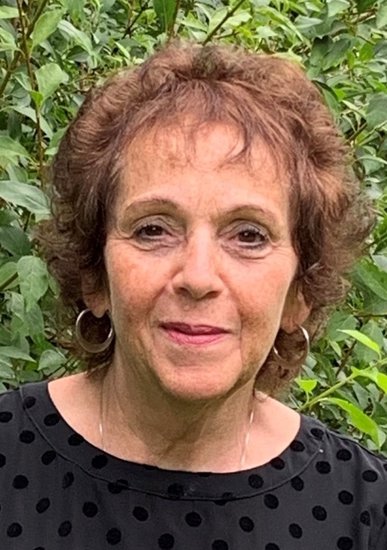
Anita Clayton
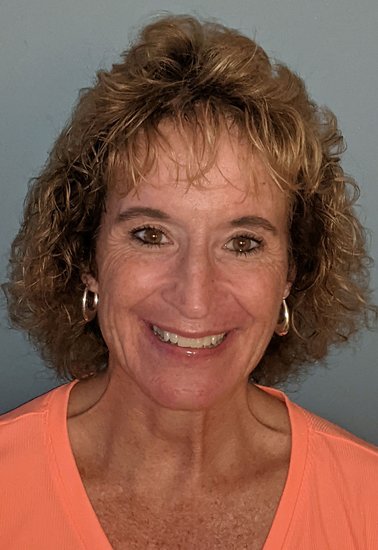
Peggy Christman
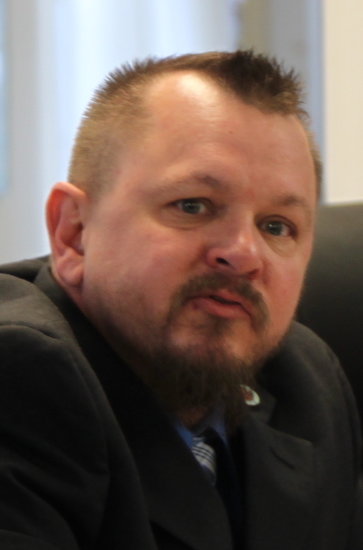
Dennis Palow
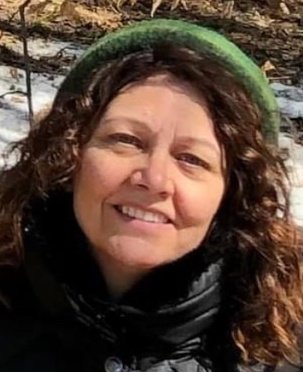
Jennifer Merrill-Fuller
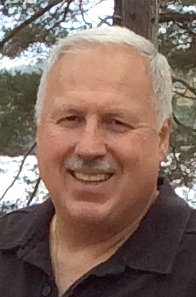
Leo Vane

Patrick Martin
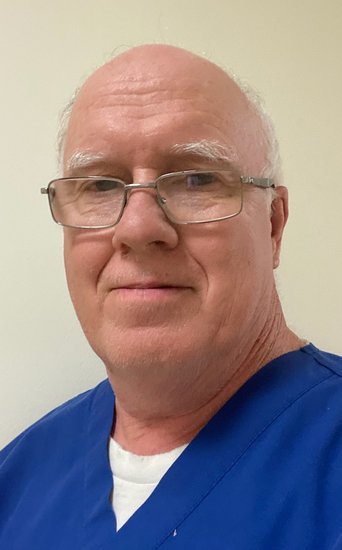
Thomas Doolin

Timothy Lippert
Controversies
In its two years of power, the Republican administration, headed by Lyons, has ignited scandal after scandal in what has been a turbulent period for the town. Among other things, the town board illegally fired planning board member Emily Vincent so the new town board majority could install former state Supreme Court Justice and convicted felon Thomas Spargo as planning board chairman, despite his having no obvious planning experience.
Vincent took the town to court, and a judge ordered that the decision be reversed, booting Spargo off the planning board.
The town also illegally fired its popular dog-control officer, Cheryl Baitsholts, who, unlike Vincent, did not take the town to court over the issue. Baitsholts’s replacement, Jodi Jansen, proved controversial in his own right, having allegedly harassed a woman who had taken a wounded dog into her care, and he later resigned on short notice due to time constraints. His resignation created an awkward situation for the sheriff’s office, which had attempted to solicit his help around the time he resigned for an investigation into a shot dog only to be redirected to Baitsholts, who at that point had no formal relationship with the town.
Also, the board-majority hired Chance Townsend as code-enforcement officer, his second stint in the job, but his qualifications from the past tenure had lapsed, and he was uncertified for nearly a full year before the issue came to light. He obtained new certification, but not before attempting to evict a family from their home in the wintertime. He still holds his position.
Most recently, the state comptroller’s office issued an audit report that detailed ways in which the town illegally handled its funds, particularly in allowing Lyons to pay bills without town-board review, which was a policy enacted when the Republicans took control in January 2020. In turn, the books kept by the town did not accurately reflect the amount of money it actually had in its bank accounts. However, the report concluded that there was no evidence of misappropriation, just mismanagement.
Incidentally, the town board has experienced an unusual number of resignations during this time, with both its newly-elected Republican-backed members from 2019 — Bonnie Conklin and Mathew Harris — leaving before the end of their terms. Harris, who resigned in February, was replaced by Vane, whose term as an appointee expires in two years, though he’s seeking election to a full four-year term this cycle. Conklin resigned last month and has not been replaced.
All the while, local Democrats have been mobilizing and concentrating their efforts on resistance and election, pumping Nov. 2 full of existential import, much like their national counterparts did in last year’s presidential election.
Town board meetings since January 2020 have been rife with confrontation and controversy, despite the town board voting to hold public-comment sessions every other month instead of each month, as it had done in the past, and halting it altogether throughout the bulk of the pandemic — yet another point of contention.
Indeed, one common concern expressed by town residents to The Enterprise was the level of division that has become normal in Berne.
Despite all this build-up, last week’s forum was a courteous affair, and candidates answered questions on voters’ most highly-appreciated topics, being Switzkill Farm, infrastructure and commercial development, senior services, and communication.
Switzkill Farm
Switzkill Farm is a 350-acre property that was purchased by the town in 2014 for cultural use, and which has been a source of controversy ever since, with some residents and board members arguing that it’s a drain on town resources and that taxpayers are better off with the property in private hands. Others, however, argue that its value as a recreational space is immeasurable, and that further development and proper management of the space could result in financial self-sufficiency if not outright profitability.
A lawsuit filed by Spargo and two other Berne citizens attempted to reverse the sale, but it was dropped.
The property’s structures are in need of repair, though each member of the Democratic ticket expressed support in ramping up renovation efforts and management so that the park’s potential can be fully realized as a resource for tourists and residents alike.
The property is currently overseen by the Recreation and Parks Advisory Board, created by the Republican administration to oversee all the town’s parks. The move was unpopular with supporters of the Switzkill Farm who thought a general oversight board would be stretched too thin.
In his response, Lippert criticized the Republican board for allowing the park to deteriorate while the coronavirus pandemic had created a natural opportunity to do interior work. “Currently, there’s trash bags and duct tape holding [things] together up at Switzkill Farm,” he said. “In a time when we haven’t been able to use it, we could have done some work fixing up the inside, fixing up the exterior, making it presentable for the public.”
Merrill-Fuller sang its praises as a hiking location free of hunters, and Christman said that — like it or not — the town owns the property, which is hard to divest because of a conservation easement that was placed over it in an agreement with the Mohawk Hudson Land Conservancy. “We need to take care of our assets,” Christman said.
Doolin, meanwhile, said that any opportunity to fulfill the park’s potential has passed, and that endeavors to move it into private hands would benefit taxpayers.
“When it was purchased in 2014, it was probably a wonderful idea,” Doolin said. “Unfortunately, there was not a plan to follow through after the purchase, or at least, if there was a plan, it didn’t come to fruition as far as, you know, making it marketable.
“... At this point, property values have increased so if there is an opportunity to sell the property and put those resources into other opportunities such as the town park, doing other development within the town to take those funds, that may be a better way to spend the resources,” Doolin said.
It should be noted that the Switzkill Farm Board had developed strategic plans, the most recent of which was adopted in 2020, just before the GOP-backed town board dissolved the Switzkill Farm board, which had been made up of unpaid volunteers. And, before the Republican administration shut down all events at the property, Switzkill Farm was host to many seasonal celebrations and weddings.
Clayton, a Democrat running on the Republican ticket, said that, although she supports the farm in spirit, she would defer to the view of taxpayers.
“Because I think of the money that will be added to your taxes, and that the taxpayers are going to support this,” Clayton said, “I really think they should have a say in what they would like to see.”
Although they did not participate in the forum, Palow and Vane have both made clear that they’re in favor of, or at least open to, shedding the property.
One of Vane’s first motions as a town board member was to put the property on the market; however, he was immediately advised by the town’s attorney, Javid Afzali, that the town would need to get an appraisal first, so the motion was retooled for that purpose.
Palow, meanwhile, was head of an initiative to break the town’s contract with Nelson Kent, a Buddhist who lived on the property before the town purchased it from a Buddhist organization and had remained there ever since, offering his services as a caretaker in lieu of rent. The board voted to sever the contract with Kent during the same meeting that it had initiated the appraisal process.
Development
A big issue in all the Hilltowns is commercial development, whether that be small businesses, big-box stores, or renewable energy facilities like solar farms and wind turbines. Essential services, like health care and internet access, are also concerns that were brought up by residents.
Lack of internet in the Hilltowns was highlighted by the pandemic, which pushed in-person meetings and activities into the digital realm — a space many can’t access because of poor infrastructure, low income, or both. Meanwhile, the Hilltowns are served by just two local health clinics, one of which is considered a micropractice, led by Dr. Myria Emeny in Westerlo, while the other, a more standard operation, is led by nurse practitioner Jill Martin.
A central issue is a perceived lack of commercial viability in the Hilltowns. Hudson Valley Wireless General Manager Jason Guzzo told The Enterprise last year that, without public funding of the likes that Westerlo is in the running for, the Hilltowns are unlikely to see improved broadband access because internet service providers won’t be able to recoup the expense of last-mile connections from the customers that effort would earn them.
Lack of development means more open space has made renewable energy projects a viable option for the Hilltowns, albeit one with a potentially damning tradeoff: loss of the rural character that defines these communities.
Nearby Westerlo had allowed five solar projects to go through before slapping down a moratorium and working on a comprehensive plan, the first that the town would codify. Patrick Martin thinks Berne needs to follow suit, for the benefit of the community and the environment.
“I do believe that the master plan, the comprehensive master plan, needs to be updated,” Martin said. “It’s kind of the roadmap for the future. This is where we address issues of bringing in businesses, locating businesses, site location.”
He added that Berne should be a “partner in a larger global effort” to “resolve the threats of climate change,” and that the town needs to begin having conversations about “where it wants to be in five years, where it wants to be in 10 years.”
Clayton, who spoke next, agreed that the town needs to redo its comprehensive plan, the current iteration of which was adopted in 2017, explaining that it “took a few years to develop, and a few more years after that for the town to adopt it. So it is old in the respect that a lot of people who participated in that [residents’] survey are probably no longer here.”
“We’ve had a lot of new members come into our community, especially in the last year-and-a-half with COVID, and [we have] younger people here in the town,” she said.
She also said that Midtel is scheduled to give a presentation to the town board on Oct. 13 about a “very large proposal” for a broadband project.
Christman agreed with Clayton and Martin’s sentiments about the comprehensive plan, and then homed in on the town’s need for a mental-health office.
“One of the things that occurred over the past year [was that] Albany County offered the town a satellite mental-health clinic, and the town turned it down, which was a terrible decision,” Christman said of the drug and mental-health counseling office that the county suggested might fit in Berne’s senior center, the former grange hall, a portion of which is essentially unused.
The town told the county that local senior citizens were opposed to the idea. Karen Stark, who coordinates the county’s senior meals program, told The Enterprise, “It’s more or less that the people coming in [to the center] are mental or on drugs … I don’t want our seniors to be at any risk at all.”
The county then suggested that Jill Martin’s clinic might be a better spot. The Enterprise was unable at the time to learn anything about further discussions between Martin and the county.
“People don’t have access up here,” Christman said. “There’s drug problems up here. There should be some sort of mental-health clinic, group counseling, whatever, for the people of this town.”
She went on to say that, with President Joe Biden in office and a massive infrastructure proposal in place, the town is in a good position to start applying for grants.
“As far as businesses … I would like to meet with the business leaders in the town to see what they think, but there’s things we can just do without consultation,” Christman said, “like agritourism. That is huge right now. And Berne has so much to offer people … so many places to go, so many places to see.”
Merrill-Fuller expressed agreement with Martin’s thoughts on solar and the comprehensive plan, adding that the town has an obligation to protect homeowners in properties that might be near a large-scale solar farm.
“I do support small-scale solar farms that are not going to ruin our beautiful views,” she said.
Lippert, like Christman, espoused the benefits of “low impact” commercial activity that agritourism brings in. “When glamping and camping in trailers and whatnot came 10 years ago, we kind of laughed at it. It was odd, it was new, but it’s all the rage now.”
As for physical health, Lippert said the town must do what it can to support Martin’s clinic, which is moving down the Helderberg Trail.
“We need to do whatever we can to help her with the opening of that new location and potentially foster some sort of mental health dovetailed into that location,” Lippert said. “With Jill’s practice, if there’s something that we can do as a town board, to broker those meetings, we should do that and be active in that.”
Doolin said that, in addition to Martin’s practice, the town would benefit from other health-related facilities, like a pharmacy or medical-supply store, but that support would have to come in the form of public assistance, since he’s opposed to raising taxes.
Also, he said, “We do need to look carefully at the infrastructure of Berne and projects such as the potential for new sidewalks, crosswalks within the hamlet itself, improving lighting in areas of the park, and any opportunities for entertainment facilities,” along with the possibility of a new business district.
Senior services
Those who need access to the services aforementioned largely drive off the Hill as needed, something that can be difficult for seniors, who may no longer drive themselves and instead rely on the assistance of others. Residents have brought up senior housing, so candidates were asked for their views on that as well as how they might extend services to seniors who require them.
“I think we need to ask seniors what their needs are,” said Merrill-Fuller. “The seniors that live in Berne vary from people like myself — I’m 60 and very independent, still employed — on up to people who can no longer drive and are facing issues around independence.
“... We have a great van; is it being put to use to the fullest?” she went on. “And the senior center; is it being used as much as it can be used? Do we need more events there?”
She said she supports senior housing but added that, until the hamlet has its own water supply, it’s unlikely that developers will come knocking. In the meantime, she said, the town should work with its neighbors, including the Berne-Knox-Westerlo School District, to enhance services.
Martin said that, with COVID-19 still a threat for the town’s most vulnerable, his priority is making sure the town does what it can to facilitate the administration of booster shots. “Health care is the most important thing for senior citizens,” he said.
He, like Merrill-Fuller, also said that the town should work with other entities and reach out to seniors themselves to identify services they require that aren’t yet apparent.
Clayton concurred on reaching out to seniors for direct feedback, and added that the town currently has a low number of volunteers because, often, those volunteering are seniors themselves. “COVID has changed everything in our lives,” she said.
As he had with universal services, Doolin indicated in his response that what the town does for seniors will hinge on how much aid it’s able to pull from the county, state, and federal governments.
“Again,” Doolin said, “if there’s opportunity through funding on a national or state level through incentive programs that may come forth with the new [federal] budget, I think we should, you know, take the opportunity to apply for these grants, apply for funding for these programs. I think there are good options available from outside without our taxes going up directly.”
Lippert said he’s in favor of senior housing as an idea, but that he’s not a fan of “finding an obscure piece of parcel that was used as a landfill, and proposing that as senior housing, long-term.”
“For the last 20 years,” he said, “people continue to talk about using the parcel that’s down by the transfer station … I think that’s a horrible idea. And it’s horrible that we would even think of treating our seniors in that way and getting groundwater from something that used to be a landfill.”
Instead, he suggested that the town work with Pine Park, a trailer-home community, to sort out affordable and senior-friendly housing options.
Christman criticized the current administration for doing “nothing,” explaining that, after the sheriff’s office arranged to set up a vaccine distribution site in the town, the administration “made a few calls and that’s it.”
Clayton and Supervisor Lyons had each received some degree of criticism following the vaccine distribution, which the town had become aware of only three days ahead of time, for allegedly politicizing privileged information.
“On Thursday, March 4, Supervisor Lyons called me to tell me the good news that we would have 102 vaccines available to our residents and asked me to assist in scheduling appointments,” Clayton wrote in a letter to the Enterprise editor earlier this year. “Knox, Westerlo, and Rensselaerville were also called with the same news: Each of their towns would also receive 102 vaccines.”
Clayton went on in her letter to explain how, with a deadline for signups coming the next day, she and Lyons made efforts to make as many people who were eligible to receive a vaccine aware of the opportunity, which included posting information to various community social-media pages, including a Berne Republicans page, which may have triggered the accusations of bias. The two also made calls to elderly residents in the town, whose names were compiled on a list given to them by Stark and senior services coordinator Alyce Gibbs.
This occurred when vaccine was in short supply and people were clamoring for it. Now, vaccine doses are readily available and Berne has a vaccination rate of 53 percent, comparatively low for Albany County.
During the forum, Christman said the town should have arranged transportation to vaccination and testing sites and helped more with distribution.
“As far as housing goes,” Christman said, “I noticed when I was bringing food boxes around this past winter that it’s not just that people need housing and don’t have it: There are an awful lot of people living in housing that’s not safe.
“I recognize that people don’t want to leave their homes, but they definitely don’t want to leave them if they don’t have [another] option. It’s absolutely something that has to be addressed,” she said. “There is currently a lot of money in [Biden’s] Build Back Better bill and it specifies rural low-and-middle income earners. It’s tailor-made for our town. We have to take advantage of the infrastructure money to make some corrections here.”
Communication
When asked how they would foster a more inclusive and cooperative environment within the town, all candidates seemed to agree that change was needed and each said that he or she would play an important role in bringing it about.
“I’ve been so disappointed in the personal attacks that have occurred on social media,” Merrill-Fuller said. “And I will not respond to or participate in character assassination … It’s just a lot of nonsense and it takes focus away from the real business of what running this town is really about. We need to focus on the town and not what this person did or that person did.”
Clayton said that the public should keep in mind the difficulty of being up on a dais and being shouted at rather than being presented information that informs decisions, but that representatives need to make themselves available to discuss concerns.
“If you could have the availability of one representative to speak to and bring your ideas back and forth, that would be a better platform for the board meetings,” she said.
Christman said she’d like to host more roundtable discussions like what the Berne Library had put on.
“It was relaxed, it was productive, it was so nice,” Christman said after explaining that there was no sign of who belonged to which party. “And I don’t know why it can’t be like that [all the time]. I understand the town board has business that has to be conducted. I also understand that, when people make their three-minute statements [during public comment periods], they don’t get any resolution or whatever to what’s being said. That’s not going to work because that just builds resentment in the person that has the concern.”
Christman said that separate roundtable discussions might better disentangle those two occasionally competing outcomes: efficient government and hearing people out.
“The Altamont Enterprise stories of the anger in Berne is the number-one thing that everybody brings up when I knock on their door,” Lippert said, adding that hearing that is common to the entire Democratic slate.
“People should be able to be heard at town board meetings and not be intimidated or feel that their safety is at risk to go to their town officers and be heard,” Lippert said.
He echoed Christman’s thoughts about the library forum, and added that the town should send out an electronic newsletter to help foster a deeper sense of community.
Martin said, “The primary reason I’m running for town board is because I’m appalled at the way the current town board has treated people. The rudeness, the threatening and intimidating behavior, the lack of transparency. I think it was unconscionable the way they treated our former dog-control officer, Cheryl Baitsholts. It’s just not to be done.”
Martin said that the venom in discourse exists nationwide, but that change will come from the town level. “We’re working with our neighbors. These are people we know. These are people you have an expectation to help, to lend a helping hand to them, and then back to you … What Berne was like 25 years ago is not at all what it’s like now.”
“We need to be honest, transparent, and open, with goodwill and a sense of peace,” he said. “That’s just asking you to be a human being.”
Doolin said that, as a medical provider, he’s demonstrated critical listening skills and frequently has to mediate the difference between information at hand and a patient’s preferred outcome in conversation, something he says he does with professional balance.
“I have no difficulty with meeting and discussing with anyone, you know, hopefully they can receive my opinion as well as give me their opinion,” he said. “But I think there’s always a chance to reach a compromise that’s not 100 percent satisfying to each side, but good, open discussion should be available to come up with a solution that works for everyone.”


